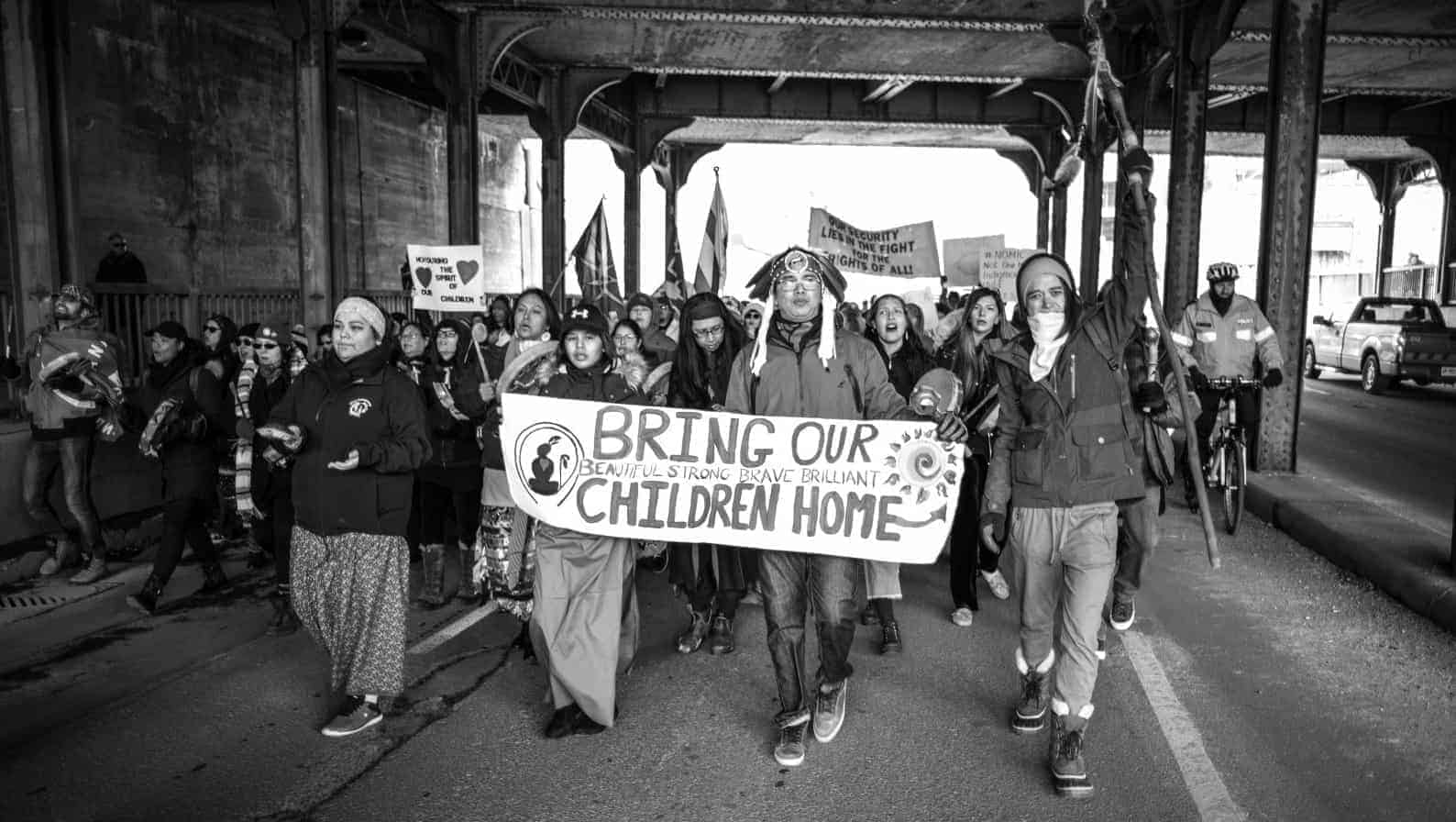- About
- Research
-
-
- Special Reports & Features
- Pretendians and Publications: The Problem and Solutions to Redface Research
- Pinasunniq: Reflections on a Northern Indigenous Economy
- From Risk to Resilience: Indigenous Alternatives to Climate Risk Assessment in Canada
- Twenty-Five Years of Gladue: Indigenous ‘Over-Incarceration’ & the Failure of the Criminal Justice System on the Grand River
- Calls to Action Accountability: A 2023 Status Update on Reconciliation
- Data Colonialism in Canada’s Chemical Valley
- Bad Forecast: The Illusion of Indigenous Inclusion and Representation in Climate Adaptation Plans in Canada
- Indigenous Food Sovereignty in Ontario: A Study of Exclusion at the Ministry of Agriculture, Food & Rural Affairs
- Indigenous Land-Based Education in Theory & Practice
- Between Membership & Belonging: Life Under Section 10 of the Indian Act
- Redwashing Extraction: Indigenous Relations at Canada’s Big Five Banks
- Treaty Interpretation in the Age of Restoule
- A Culture of Exploitation: “Reconciliation” and the Institutions of Canadian Art
- Bill C-92: An Act respecting First Nations, Inuit, and Métis Children, Youth and Families
- COVID-19, the Numbered Treaties & the Politics of Life
- The Rise of the First Nations Land Management Regime: A Critical Analysis
- The UN Declaration on the Rights of Indigenous Peoples in Canada: Lessons from B.C.
- View all reports.
- Special Reports & Features
-
-
- Yellowhead School
- The Treaty Map
- LIBRARY
- Submissions
- Donate
Yellowhead Institute acknowledges the lives and families of Jordan River Anderson, Shannen Koostachin, Katelynn Sampson, Jordan Manners, the twelve youth identified in the Safe with Intervention Coroner’s Report, Jordan Wabasse, Kyle Morrisseau, Curran Strang, Robyn Harper, Paul Panacheese, Reggie Bushie, Jethro Anderson, and all Indigenous children who have died as a result of the systemic violence committed against them in the country currently known as Canada.
LAST WEEK, THE ONTARIO GOVERNMENT ANNOUNCED the elimination of the independent office of the Ontario Child Advocate, moving some of its functions to the office of the Ombudsman and this week, established three separate advisory tables.
This move severs the investigations and advocacy function previously housed in the Advocate’s office, cutting this critical level of oversight.
Removing this protections for First Nations, Inuit and Métis children and youth should raise concern for every family and community.
In 2016-17, more than 167,700 calls and referrals were made to Children’s Aid Societies in Ontario, with over 82,000 investigations taking place. In any given month in Ontario, there are over 12,000 kids in the care of the province.1 Between January 2014 and August 2017, twelve children died in residential services placements; eight were Indigenous. Irwin Elman, the outgoing Ontario Child Advocate, has indicated there are currently 27 investigations2 being conducted by his office into residential care placements. Being in the care of child welfare creates vulnerability to human trafficking and sexual exploitation; about two-thirds of reported cases of human trafficking in Canada occur in Ontario.3
Ontario is not a safe place for every young person.
The loss of the Advocate’s office means dramatically less support for youth in secure custody, youth living with disabilities, First Nations, Métis, and Inuit young people, youth in provincial schools, and youth receiving mental health services. The Advocate and their office plays a critical role in the province investigating complaints by youth regarding the services they receive, advancing the priorities of young people, as well as providing guidance and space for young people to be heard on issues that impact their lives.
The Advocate has led the sector in affirming the rights of young people and has advanced some of the most critical policy initiatives focused on putting children first, most notably Katelynn’s Principle and Feathers of Hope. The Katelynn Sampson Inquest, Seven Fallen Feathers Inquest and Safe with Intervention Coroner’s report built on the Roots of Youth Violence Report , the Commission to Promote Sustainable Child Welfare, and Children First: The Aboriginal Advisor’s Report on the status of Aboriginal child welfare in Ontario.
The push for thoughtful, rights-based supports based on the developmental needs of young people have been slowly implemented in the province, spurred on by the tragic death of children made vulnerable by the system meant to support them.
The youth-serving sector in Ontario requires more accountability to the young people it is meant to support and protect, not less.
The decision to eliminate the role of the Children’s Advocate follows other decisions made by the province that impact Indigenous children: the collapse of the former Ministry of Children and Youth Services into the now super-social services Ministry of Children, Community and Social Services, a portfolio held by Lisa MacLeod, who is also the Minister Responsible for Women’s Issues; Minister Greg Rickford carrying the portfolio for both Indigenous Affairs and Energy, Northern Development and Mines; and the interference in sexual education curriculum by the province, politicizing the rights-based education of children in the province.
Emerging is an apparent trend that undermines the protection of rights for young people through the removal of critical government mechanisms intended to protect them. Eliminating independent oversight and advocacy will expose children and youth in the province to greater risk of harm with less support and means to access safety.
These actions taken over the past few months in Ontario show just how radically a change in provincial policy can impact the daily lives of vulnerable communities, and Indigenous people in particular.
While much Indigenous advocacy has focused on the role the federal government plays constitutionally over Aboriginal people, the role of the provinces and territories in the division of constitutional powers is often overlooked.
In other words, specific structural barriers exist in each province that can act either as barriers or enablers for Indigenous peoples and self-determination, dependent on the political will of the province or territory. Manifested in a patchwork of legislation, policy, and regulation, these barriers hinder national organizing by First Nations people and fragments nations whose traditional territory exists beyond colonial borders. This is especially true in many areas of education and social policy which generally falls to the provinces. For example: Ontario and British Columbia are the only two provinces which cover post secondary education costs for Crown wards, while Ontario and Manitoba are the only two provinces with a provincial tort of human trafficking and a specific restraining order available to protect individuals who are at risk of being trafficked.
These few cases demonstrate some of the many ways people experience unequal protections and access to opportunity in Canadian federalism. These structural barriers, which many accept as the norms of governance, are the product of settler colonialism. The maintenance of these systems is fundamental to upholding the colonial assumption that provinces, or any colonial government structure, have a right to exist in the first place. They do not, especially if they come at the expense of widespread harm to Indigenous children.
While Jordan’s Principle seeks to address the impacts of these structural barriers for First Nations children and youth, there has yet to be substantive implementation of the Principle and no substantive national reform of the youth-serving sector. Children, families, and communities who are forced to react to these inequalities bear the burden of service navigation and advocacy. So a broader push for free, prior, and informed consent on social and education legislation, policy, and regulation is critical to transforming colonial structures and reimagining the colonial nation state that affirm the rights of Indigenous children, families, and communities. These substantive reforms are expected to be presented to the Canadian Human Rights Tribunal in the coming months.
Young Indigenous people have a right to be included in decisions that affect their lives. They are rights holders of individual rights as humans and as children and youth. Most importantly, they are collective rights holders, who have a right to their nationhood, identity, philosophies, history, and inheritance of indigenous knowledge, empowered to take up their responsibilities within Indigenous ways of being and knowing.
Decolonization and reimagining Indigenous governance and decision making necessarily requires the inclusion of young people into our own communities and organizing, and that validation our works meaning and relevance comes from young people themselves. Youth from Nishnawbe Aski Nation (a political territorial organization representing 49 First Nations within Northern Ontario) have called for the (re)instatement of an advocate function – like the work of the Ontario Child Advocate, specialized to address with their unique circumstances.
When children very clearly voice their own needs, we should be moved to listen and act.
Endnotes
1Ontario Association of Children’s Aid Societies: Facts and Figures, http://www.oacas.org/childrens-aid-child-protection/facts-and-figures/
2Jackson, Kenneth, Ontario’s child advocate has 27 on-going investigations into foster homes as province shuts him down, Nov 20, 2018, APTN, https://aptnnews.ca/2018/11/20/ontarios-child-advocate-has-27-on-going-investigations-into-foster-homes-as-province-shuts-him-down/3Ministry of Children, Community and Social Services: Ontario’s Strategy to End Human Trafficking, https://www.mcss.gov.on.ca/en/mcss/programs/humantrafficking/index.aspx
Citation: Skye, Courtney. “Eliminating the Ontario Child Advocate Threatens the Rights of Indigenous Kids.” Yellowhead Institute, 28 November 2018, https://yellowheadinstitute.org/2018/11/28/eliminating-on-child-advocate/
Image by Stan Williams



